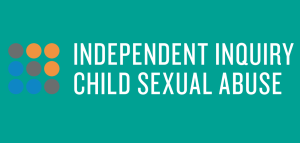Religious organisations and communities are frequent targets of abusers.
Religious institutions are often well-placed and strongly motivated to cover up incidents of sexual and physical abuse.
We work to hold these organisations to account and get justice for abuse victims and survivors.
Many religious organisations enjoy a close relationship with the establishment and tend to see themselves as above the law. This can increase the risk of abuse, prevent perpetrators from facing justice, and impede efforts to support and compensate victims and survivors of abuse.
Those intent on abuse are often attracted to religious institutions. Such organisations give access to, and sometimes extreme control over, numerous children and vulnerable adults.
When abuse does occur, religious organisations often act to protect the reputation of the institution above the rights of the victim. They may pressure the victim to stay silent and move the perpetrator to somewhere unaware of their reputation.
Many religious institutions also have influence and connections that enable them to evade justice and scrutiny, often for decades.
All forms of abuse, be they sexual, physical or psychological, can cause serious harm. Victims of abuse in religious settings have suffered physical and mental health problems, including addiction, self-harm and suicide.
No religious organisation is immune to abuse. That's why we work at the national and international level to hold religious organisations to account for safeguarding failings, and to ensure victims and survivors can get justice.
Take action!
1. Share your story
Tell us why you support this campaign, and how you are personally affected by the issue. You can also let us know if you would like assistance with a particular issue.
2. Write to your MP
Ask your MP to support our work to end abuse in religion settings
3. Join the National Secular Society
Become a member of the National Secular Society today! Together, we can separate religion and state for greater freedom and fairness.
Latest updates
Solicitor struck off for conflict of interests in defending bishop
Posted: Mon, 9 Jan 2023 15:39
A legal advisor who delayed bishop Peter Ball's imprisonment for abuse has been struck off, following complaints raised by the National Secular Society.
Christopher Peak, the former legal advisor to the Church of England Diocese of Gloucester, agreed to remove himself from the roll of solicitors by the Solicitors Regulation Authority (SRA), according to a decision published today.
In 1992 Peak became the personal solicitor to Ball (pictured), then the bishop of Gloucester, to defend him against multiple allegations of sexual misconduct involving congregants, some of whom included minors and vulnerable adults.
Ball admitted to Peak that he had committed offences of indecent assault and gross indecency against parishioners.
The SRA found Peak had "wilfully or recklessly disregarded the risk of harm" by agreeing to defend Ball while also acting as the registrar and legal advisor for the diocese.
This therefore caused a conflict of interest between his duty to protect the interests of the diocese's congregation, and Ball's desire to receive "as lenient an outcome as possible" for his offences and return to his ministry.
Peak's defence leads to delay in conviction
Following Ball's arrest in 1992, Peak successfully encouraged the Crown Prosecution Service to issue him with a caution rather than prosecute him. Although Ball subsequently resigned, the Church took no disciplinary action and Ball was not placed on the church's list of clergy about whom there were concerns.
Instead, Ball was permitted to carry out services within the Church, including working with children.
Ball was not convicted until 2015, after new evidence of his abuse of boys and young men emerged. He was sentenced to 32 months in prison.
During the two decades in which Ball evaded prison, the abuse suffered by his victims was compounded by the Church's unwillingness to act, leading them to expect Ball would never face justice. Victim Neil Todd committed suicide after several attempts starting in 1992.
The Church's report concluded in 2017 that its actions were "likely to have led people in the Church to believe that Ball was essentially innocent", when Peak at least knew he was not.
Ball also used his friendships with senior establishment figures, including then-Prince Charles, to evade justice.
Charles told Ball in a letter in 1995, two years after the bishop had accepted the police caution: "I wish I could do more. I feel so desperately strongly about the monstrous wrongs that have been done to you and the way you have been treated."
NSS welcomes SRA decision
Between 2015 and 2018 concerns over Peak's role were raised by the Independent Inquiry into Child Sex Abuse and the NSS.
NSS president Keith Porteous Wood said: "We welcome the SRA's response to our concerns. The clear conflict of interest led to an unacceptable delay in Ball's conviction, putting children at risk and adding to the anguish of his victims. Peak should never have put the bishop's interests above justice for the victims and the safety of his congregation.
"Sadly, there are indications that the Church has failed to learn from this incident. IICSA has repeatedly found cases of the CofE protecting its own reputation above the wellbeing of children and other vulnerable people.
"The role of the Church's privileges, including its close relationships with the establishment, in its failings on sex abuse within its ranks must be scrutinised."
NSS vice president and lawyer for many of Peter Ball's victims, Richard Scorer, said: "This case demonstrates yet again that the Church of England has been rife with conflicts of interest particularly when it comes to dealing with cases of clerical abuse. In this case the interests of a senior Bishop under investigation for abuse was treated as being the same as the interests of the church as a whole.
"Cases like this show yet again that the Church of England cannot be trusted to deal fairly and objectively with abuse allegations in house and only proper independent oversight and mandatory reporting will ensure that this happens. We need these urgently."
NSS welcomes mandatory reporting of clerical abuse recommendation
Posted: Thu, 20 Oct 2022 15:29
The Independent Inquiry into Child Sexual Abuse (IICSA) has recommended mandatory reporting of abuse without exemptions for religion.
In its concluding report published today, IICSA recommended child sexual abuse must be reported and should "not be subject" to religious exceptions. It added abuse must be reported even if it is revealed during "sacramental confession", despite objections from religious groups.
The report concluded "neither the freedom of religion or belief nor the rights of parents with regard to the education of their children can ever justify the ill-treatment of children or prevent governmental authorities from taking measures necessary to protect children from harm."
More than one in ten survivors of child sexual abuse who shared their accounts with the inquiry's Truth Project reported sexual abuse in a religious institution. Despite this, there is currently no legal obligation for religious institutions to report child sexual abuse to secular authorities such as the police. Legal counsel for IICSA has observed that religious settings are less well-regulated than donkey sanctuaries.
The National Secular Society has repeatedly called for mandatory reporting of abuse, independent oversight of church safeguarding, abolition of statutes of limitations, and financial redress for survivors.
The report also included harrowing victim testimony of abuse in religious institutions. One child was discouraged by her Jehovah's Witness social worker from reporting sexual abuse perpetrated against her by her family. The social worker said, "you know how Jehovah feels about liars".
Another was told he was "tarnishing the reputation of the Muslim religion" and described feeling "let down" by Muslim authority figures "who have authority to deal with this" but prevented him from speaking out about being sexually abused as a child.
"[E]xcessive corporal punishment" in Roman Catholic schools was often used as a "means … of obtaining sexual gratification".
The report was also highly critical of religious groups' handling of abuse. Both the Roman Catholic Church and the Church of England "demonstrated a persistent reluctance to report complaints of child sexual abuse to external agencies", it said.
The inquiry found the former archbishop of Canterbury, Lord Carey, showed a greater "degree of compassion" to a bishop who committed abuse than his victims. Cardinal Vincent Nichols, the now leader of the Catholic Church in England and Wales, made "no acknowledgement of any personal responsibility".
IICSA, chaired by Professor Alexis Jay OBE, is a statutory inquiry established in 2015. The inquiry's original remit to investigate institutional child abuse included only the Anglican and Roman Catholic churches as religious settings. This was widened in 2019 to include all major UK religions as well as religious supplementary schools such as madrasas, yeshivot and Sunday schools.
The NSS's response to IICSA forms part of its broader campaign to hold religious institutions to account for clerical abuse. Earlier this year, an NSS recommendation to the UN Committee on the Rights of the Child resulted in Chile being ordered to investigate all cases of child abuse in its Catholic Church. The NSS has also urged the UN Human Rights Council to exert pressure on the Vatican to submit long overdue reports on its response to child sexual abuse.
NSS: Mandatory reporting without religious exceptions "necessary and welcome"
NSS chief executive Stephen Evans said: "This inquiry's examination of religious organisations and settings has revealed a catalogue of safeguarding failures and a shameful history of child sexual abuse and subsequent cover ups.
"The recommendation for mandatory reporting to be an absolute obligation, without religious exception, is therefore necessary and welcome.
"We hope the recommendations will be enshrined in law and we look forward to working with legislators to strengthen proposals where necessary to adequately protect children from abuse."




